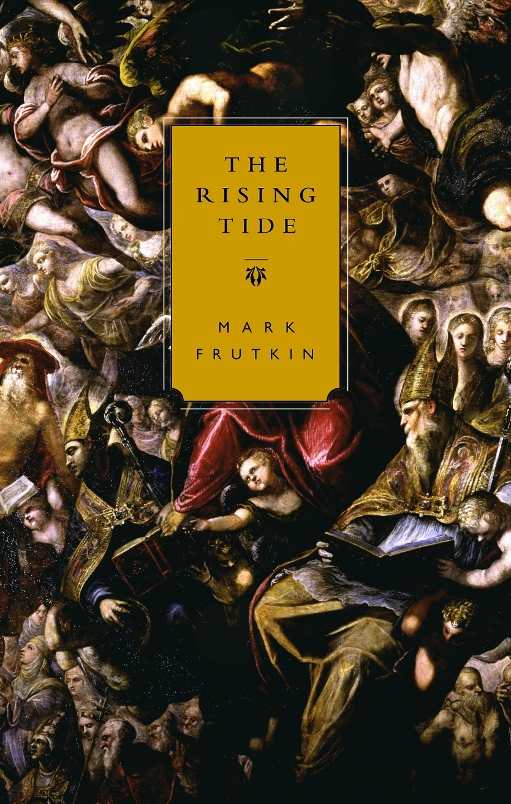The Rising Tide
- 2018 INDIES Finalist
- Finalist, Fantasy (Adult Fiction)
The Rising Tide builds to a farcical crescendo of complications and crises.
“Like good Christians everywhere, the Venetians had a strain of the apocalyptic running in their veins,” writes Mark Frutkin in his novel, The Rising Tide. In the annus horribilis 1769, Venice was poised between zenith and decline. Still an independent republic, it was the most refined city in Europe, influencing art, architecture, and literature, even as threats to its independence encroached.
In this setting, two merchants return from the island of Torcello with tales of a man bearing a skeleton on his back, and sightings of a wolf wearing a priest’s cassock. Rumors about the end of days spread as far as the Vatican. An inquisitor is dispatched, but exposing the unholy rumors at the heart of these tales reveals that passion and power are still the city’s lifeblood, and the source of humanity’s most tragicomic follies.
The Rising Tide builds to a farcical crescendo of complications and crises. Prostitution, church politics, fanatic fatalism, star-crossed lovers, virgin whores, and a running gag—at times, quite literally—involving pungent cheeses all unite with the nascent power of the printing press and the shape of love, sex, and scandal at the intersection of Europe’s secular and Catholic worlds.
Hilariously self-aware, the narrative perspective makes excellent use of expectations and incongruity. There’s a tacit admission that “reconstructing the past is like taking apart a large, complex clock in one room and reassembling it in another room. There will always be a few miscellaneous pieces that don’t seem to fit anywhere.” But the slight surreality of the novel’s historical setting enables the suspension of disbelief, allowing Venice to reemerge in a light that’s comically antique. From lexical choices such as a “frustrum of mutton” to illustrative etchings evocative of eighteenth-century travel guides to the faux-earnestness of the novel’s commentary, the book’s tonal dissonance runs in delicious counterpoint to the characters’ self-seriousness, and to great comic effect.
Among the central players, relationship entanglements are profuse, and revelations are encumbered by layers of conflicting motives and deception. Printer and former priest Michele Archenti, hermit Rodolfo, brothel madame Bianca Lucca, inquisitor Bruno Pissani, underground poet Arcangelo, and courtesan Francesca Verace are configured and reconfigured in labyrinthine permutations. Lovers struggle to find each other, friends are separated and reunified, and power-players lob crosses and double-crosses. Amidst it all, internal and external battles between logic, prudence, and purity versus irrationality, emotion, and instinct achieve a satirical scale.
Elizabethan in its comedy, The Rising Tide subverts expectations, turning a potential second coming on its ear. In a world where a man can go years with a skeleton strapped to his back and where prostitution is an essential sphere of public trade, anything is possible … and likely. Characters become players on a stage, their crises cathartic. Filled with witticisms, wordplay, and an enticing blend of humor and tragedy, the novel’s ideas of apocalypse are wedded to a wry knowing that unveils the antics embedded in mechanisms of power and human machinations alike.
Reviewed by
Letitia Montgomery-Rodgers
Disclosure: This article is not an endorsement, but a review. The publisher of this book provided free copies of the book and paid a small fee to have their book reviewed by a professional reviewer. Foreword Reviews and Clarion Reviews make no guarantee that the publisher will receive a positive review. Foreword Magazine, Inc. is disclosing this in accordance with the Federal Trade Commission’s 16 CFR, Part 255.

